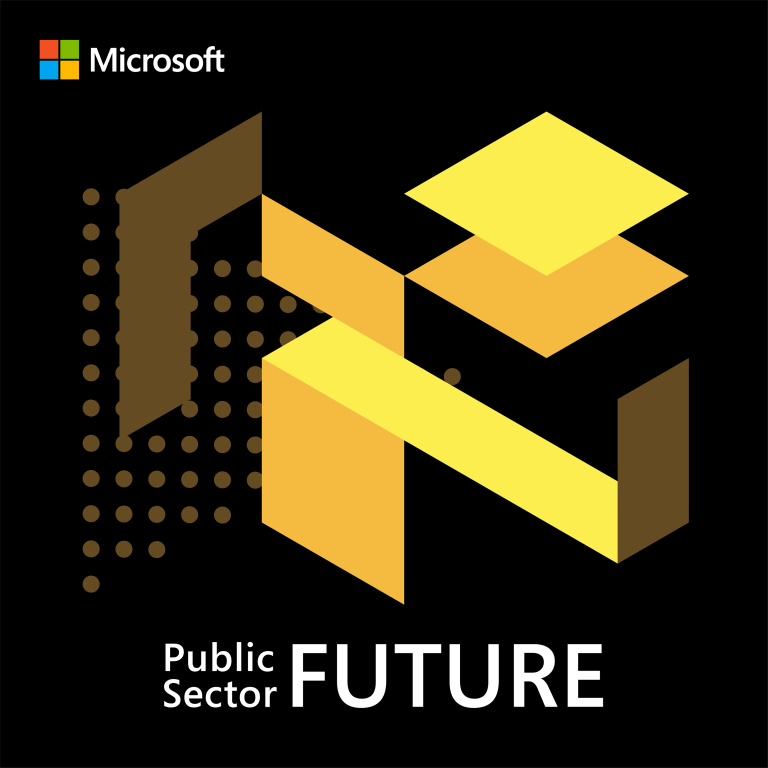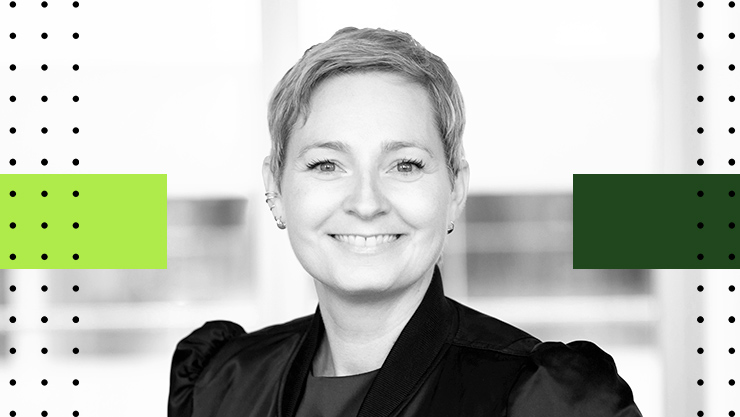
The rise of remote learning and future of education
with Mohammad AlmadaniMohammad Almadani is the CEO of Classera and was one of the founders of the organization in 2012. He was driven to develop smart learning focusing on AI, gamification, and social learning. In 2017, Almadani received the Endeavor World Certificate as one of the most impacting entrepreneurs in the world.

This is a show for anyone who cares about using digital approaches in the public sector to deliver better outcomes. We explore stories from around the world, where public servants have been successful at driving change. We meet the people behind the stories, to hear their first-hand experiences and lessons learned. Throughout the series we discuss technology and trends, as well as the cultural aspects of making change happen.
In this episode we speak with Mohammad Almadani, CEO & Co-Founder of Classera, Microsoft’s Education Partner of the Year. Classera was recognized for their work empowering schools through the pandemic. Almadani was driven to develop smart learning solutions focusing on AI, gamification, and social learning. We discuss the growth of remote learning, how it supported education in conflict environments, how countries with limited infrastructures embraced this approach, and his vision for the future of education.
Click here for transcript of this episode.
Mohammad Almadani [guest] | LinkedIn | Twitter
Olivia Neal [host] | LinkedIn | Twitter
Microsoft Public Sector Center of Expertise
Discover other Microsoft podcasts: aka.ms/microsoft/podcasts

Episode summary
In this episode we speak with Mohammad Almadani, CEO of Classera, Microsoft’s Education Partner of the Year. Classera was recognized for their work empowering schools through the pandemic. Almadani was driven to develop smart learning solutions focusing on AI, gamification, and social learning. We discuss the growth of remote learning, how it supported education in conflict environments, how countries with limited infrastructures embraced this approach, and his vision for the future of education.
Listen to this episode on any of these podcast platforms:
Microsoft’s Education Partner of the Year – Classera
Over the next three episodes, we explore the work of some of the people and teams instrumental in helping Public Sector organizations deliver. The ecosystem that supports delivery is broad and at Microsoft we work with partners around the world.
In this episode we dive into the work of the Microsoft’s Education Partner of the Year, Classera, who was recognized for their work over the past year in empowering schools to keep teaching through the pandemic with their ‘Learning Never Stops’ initiative.
Classera – Gamified learning management system
Mohammad Almadani is the CEO and one of the founders of Classera. Almadani started Classera in 2012 while he was still in university, as he was driven to develop smart learning solutions that are more than just e-learning platforms. Classera focuses on Artificial Intelligence, gamification, and social learning.
Almadani discusses the growth of remote learning, and how it has supported education in conflict environments, how countries with limited infrastructures have embraced this approach, and his vision for the future of education.
He begins with a background on how Classera started in the US, moved to Silicon Valley, and then expanded in the MENA (Middle East, North Africa) region. The company is now working in close to 30 countries, with more than 10 million users.
Importance of smart learning platforms in crisis scenarios – mindset shift that e-learning is a necessity
“We started to gain more momentum and a little bit further down the road, war broke in the region in the border of Yemen and Saudi. And there was more than a hundred thousand students with no schools. So we did, at the time before COVID, the biggest virtual school in the whole region,” Almadani shared.
This was the start of a mindset shift, especially among officials, that remote learning is not just a luxury but a necessity.
“Learning Never Stops” initiative launched during the COVID-19 pandemic
In 2020 due to the pandemic “close to 800 million students worldwide couldn’t go to schools anymore,” Almadani shared.
With a platform that could help, instead of capitalizing on the time of crisis, Almadani felt Classera had a social responsibility to offer their services. With the aid of their partners like Microsoft, Classera was able to able to offer their services for free under their “Learning Never Stops” initiative.
Ministries of education and private schools worldwide were able to sign up for free, and thousands took advantage of the opportunity, from primary schools to universities. Many countries signed up, some with strong infrastructures and others with weak infrastructures and economic difficulties. Iraq, Lebanon, Comoros, Djibouti, and Sudan were among the mix.
“We started with the concept that even if we cannot achieve it all, at least let’s try to do whatever we can,” Almadani shared the mindset on the major task at hand.
Almadani gives credit to the team at Classera, “I used to joke about working 26 hours a day. That’s how I look at the time because you’re supporting different countries from all over the world, different time zones and people are signing up for free, and they’re trusting what you have done. We have the biggest university academy in one of the regions or in the world, and you have these global partners.”
Classera in action across the globe
Almadani recalled stories from Classera users in several countries.
“People are gathering sometimes in the biggest home in the village and sharing the internet and trying to share the lessons together,” Almadani shared.
They saw evidence of vast platform use with students competing with other students around the world because of the gamification that classifies students.
Changing assumptions and lessons learned
Along with assumptions of Education ministries, Classera’s own assumptions changed. Almadani stated they previously believed that “if you want to do a change, you have to send a big team and you have to do these things on the ground. It turns out, when people are forced to do something, they can do it. We started to do online training.”
“Part of the lessons that we both learned as Classera and the officials in those several countries – at least do it gradually. As I said, something is better than nothing,” Almadani continued.
Sharing success of the “Learning Never Stops” initiative
“We had feedback with some students that they were getting a better education because they’re getting some of the best teachers from the capital doing a centralized lesson to the entire country,” Almadani shared.
Classera was also taken by surprise when Saudi Arabia decided to go completely virtual for education nationwide with Classera and made the announcement three weeks before the school year started. Classera had anticipated a hybrid education model, like most other countries.
Classera felt the tremendous responsibility of being the school of the nation. “If the system is stopping for even one minute, it means all the schools in the country are closing for one minute,” Almadani shared.
“It was a great challenge but the thing that I was proud of the most is how students who are so happy about their experience and how with the gamification, they thought a school is a completely different experience this year. So those students who did their first grade with us, I think they will remember us for the rest of their life,” Almadani continued.
Almadani gives credit to more than Classera and the platform alone. “It was that collaboration of everybody, from the ministries we work with and the real heroes were the parents, that’s the hard part of that completely virtual school, of course, because they have to be the guardian over those kids,” Almadani said.
Vision for the future of education
“Looking forward, of course we think it should be a hybrid model, so we’re not calling for the schools to shut down like what we saw. But what we really think is the hybrid model of going to the school but using the technology to interact with your learning experience, whether it is your assignments, your exams, sharing their projects, tracking – that’s the way forward,” Almadani explained.
“I think that learning experience is going to be a lot more fun,” Almadani continued.
Artificial Intelligence & Augmented Reality/Virtual Reality in education
“Part of the future is the deeper utilization of AI. And that’s what we started, we have something called Smart Mate,” Almadani shared.
Smart Mate is an AI which assists students individually in analyzing and giving suggestions to improve education. For example, it can suggest more videos in an area where a student is struggling. Smart Mate helps fill gaps in education without the intervention of the teacher, who can have 20-30 students and can then focus on the human relationship of the learning experience.
Classera has also adopted the use of augmented reality and virtual reality, with many teachers blending their lessons with some augmented reality experience or virtual reality experience.
“Using the augmented reality in general, in all of its different forms, is going to be a big part of the learning experience and we have to be adopting to that level,” Almadani said.
Change of mindset within public and private sector
“The biggest thing I think we got away from the pandemic is not the spike in users, I think the biggest gain and not just for Classera, for the industry is the change of the mindset. So many of the decision makers, whether in governments, whether in private sector, they are convinced that this is a must-have, not nice- to-have, this is a necessity, not a luxury, and that what we have been preaching for since 2014,” Almadani shared.
“We focus a lot on the potential and the reality of digital exclusion, where the infrastructure doesn’t allow people to access things, but if we don’t push and we don’t try to put things in place, then we don’t generate the demand for better digital infrastructure as well,” Almadani continued.
Inspiration for the future
Almadani foresees better students who can become better professionals and inventors because of Classera, regardless of their background or economic status.
“If we can inspire them from an early age, I think we can be part of the solution one step closer to their real potential. And that’s what we hope for. That’s what we are trying to solve for,” Almadani said.
Classera is working on helping bring accessible education of the future to more countries, with more countries already joining every quarter.
“We’re very excited to have this great impact on the world and hopefully motivate and inspire a lot more student users in the coming future,” Almadani finished.
To find out more:
Microsoft’s 2021 Partner of the Year Winners – Classera in Education
Follow Mohammad Almadani on Twitter
About the Center of Expertise
Microsoft’s Public Sector Center of Expertise brings together thought leadership and research relating to digital transformation in the public sector. The Center of Expertise highlights the efforts and success stories of public servants around the globe, while fostering a community of decision makers with a variety of resources from podcasts and webinars to white papers and new research. Join us as we discover and share the learnings and achievements of public sector communities.
Questions or suggestions?











